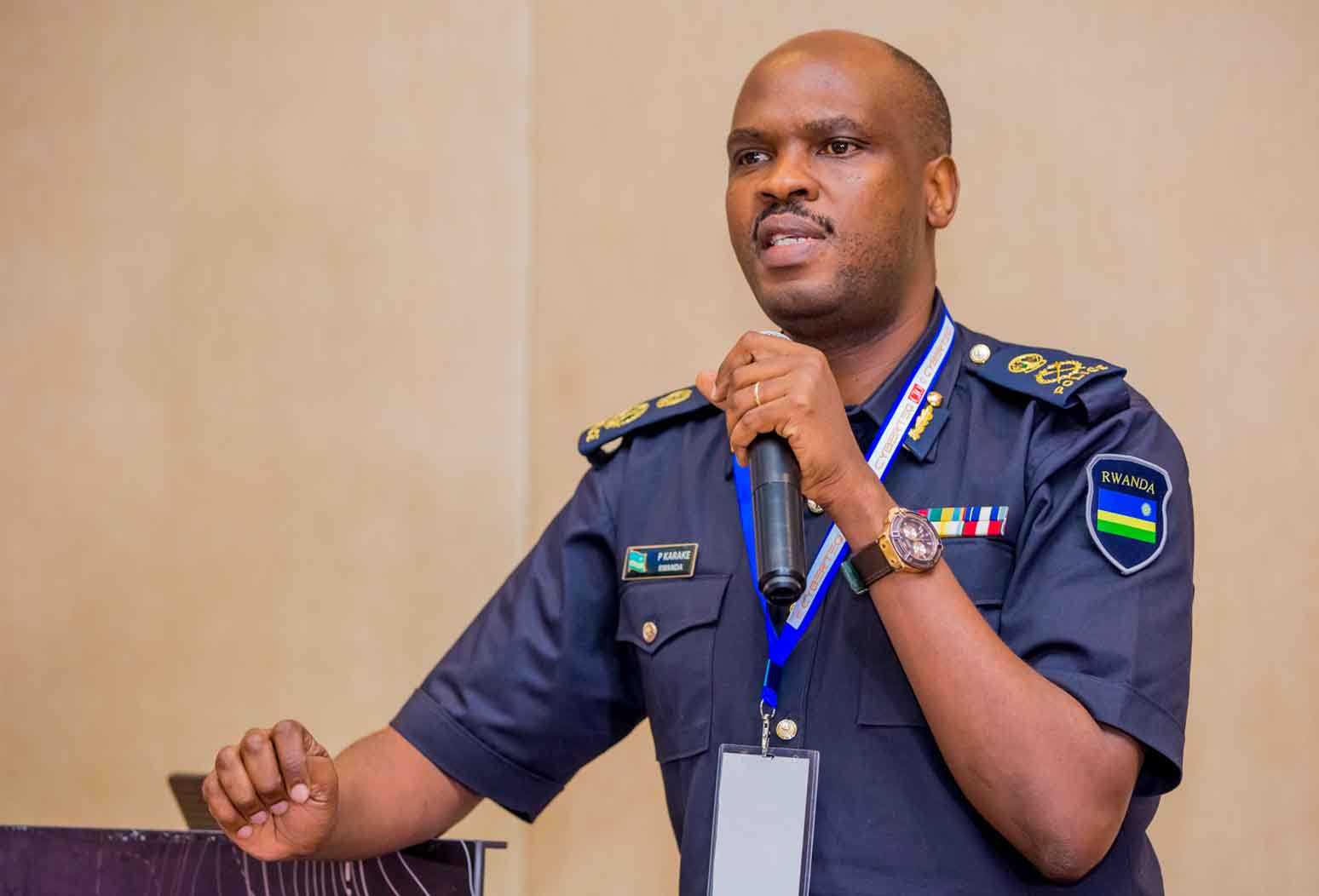advertisement
Policing cyberspace is out-rightly a new calling for states
Although Cloud Computing has emerged as a new paradigm for hosting and delivering services online, one can’t overlook cyber-crime that’s…

Although Cloud Computing has emerged as a new paradigm for hosting and delivering services online, one can’t overlook cyber-crime that’s gained momentum over the Internet says Peter Karake, Rwanda’s Assistant Commissioner of Police (ACP).
While making a presentation on Cyber Security Law Enforcement on 29th March, 2018 – the final day of the premier Cloud and Security Summit organized by CIO East Africa and Rwanda Information Society Authority (RISA) in Kigali, Rwanda, ACP Karake asserted that police are grappling with fast changing tactics of cyber-criminals.
Despite the exciting leaps of development in the cyberspace that has proven potentially free of conventional politics, social order and social regulation, numerous challenges have continued to emerge in the space that was created by the Internet.
advertisement
The optimism arising from its potential to democratise access to hitherto restricted knowledge and thus level out some of the social boundaries that have developed both within and across societies is tempered by the nature of this revolutionary new resource.
“The (African) continent has witnessed the fastest rate of broadband connection on the global level and thus attracting more cyber related crimes and as a result there is a need for collaboration of law enforcement agencies, what is important is to cooperate, the dangers are real but we cannot afford to have the pace of development and progress to be slowed down as a result.”
President Paul Kagame, Rwanda
Attraction of more cyber related crimes
In an effort to sustain the fight to tame cybercrime in Rwanda, ACP Karake made reference to the country’s President Paul Kagame’s visionary which stated: “The (African) continent has witnessed the fastest rate of broadband connection on the global level and thus attracting more cyber related crimes and as a result there is a need for collaboration of law enforcement agencies, what is important is to cooperate, the dangers are real but we cannot afford to have the pace of development and progress to be slowed down as a result.”
advertisement

ACP Karake further noted that in addition to the considerable benefits that the Internet creates, there are also many opportunities for new types of offending and new forms of anti-social behaviour. Moreover, cyberspace undermines economic, social and political boundaries, posing a considerable threat to traditional forms of governance and creating a challenge to traditional understandings of order.
advertisement
Regulating undesirable behaviour
Conventional understandings of crime and policing are based upon a collective social experience of traditionally bounded space, not the virtual environment of cyberspace. Since the Internet is clearly here to stay, several important questions emerge, such as ‘who will regulate “undesirable” behaviour?’ and ‘how will they police it?’
Presently, Rwanda has more than 4,500Km of fibre optic cables coupled with installation of 2G, 3G and 4GLTE coverage at 90, 55 and 90 percent respectively in the country.
From an initial 2% of Internet users to a current 45% in the last 10 years and an increase of mobile users now above 80% of the country’s approximated population 12 million people, the country has made positive strides on Information Communications Technology.
“The damage of cyberattack cost 5BN USD in 2017 world-wide. In the amount involved in cybercrime cases increased by 50% in 2017,” said ACP Karake adding that financial gain remains the primary motivation for most attacks.
Enhance collaboration
With the aim to have a common understanding on cybercrime and law enforcement with view to enhance collaboration in dealing with it, Rwanda Police embarked on a deliberate mission of being part of a process that national process that’s charged with the responsibility of enhancing cybersecurity in the country.
Of importance to the law enforcement agency is to be guided by the law and ensuring that integrity, confidentiality and availability (ICA) of information is upheld. ACP Karake notes that this positions represents the ability to defend against and recover from accidents like hard drive failures or power outages, and from attacks by adversaries.
“The latter includes everyone from script kiddies to hackers and criminal groups capable of executing advanced persistent threats (APTs), and they pose serious threats to the enterprise,” said the ACP Karake. Business continuity and disaster recovery planning are in every bit as critical to cyber security as application and network security, he added.

Rwanda Cyber Security Law
Karake noted that cyber security per Rwanda Law ranges from any type of illegal scheme that uses one or more components of the internet (Chat rooms, email, message boards, websites and auctions) to fraudulent transaction or transmission of proceeds of fraud to financial institutions or to others connected with the scheme.
Other areas, which the country’s law has factored evolves around generation of spam emails, downloading viruses or spyware to computer, harassing another through the internet, child pornography and solicitation of prostitution online as plus identity theft to steal personal information from the users. “Equally punishable by law is usage of technology as a tool for sexual exploitation, human trafficking, conducting acts of terrorism, drug trafficking and engagement in underground economy.
Despite the progress of having a law that’s line to progressively tame cybercrime, Rwanda still faces challenges in policing the intricate cyberspace.
Challenges
Some of these challenges range from, lack of proper IT security infrastructure, qualified and certified personnel like network security officer(s) to having low level of compliance to IT policy, Certification of IT applications used by financial institutions, ownership of the IT network infrastructure and dependency on software vendors and lack of awareness on cyber threats.
ACP Karake further said: “Rwanda also faces the challenge of offenders operating from overseas countries to barriers to sharing information between countries and anonymous transactions between offenders and uncontrolled registration and use of SIM cards.